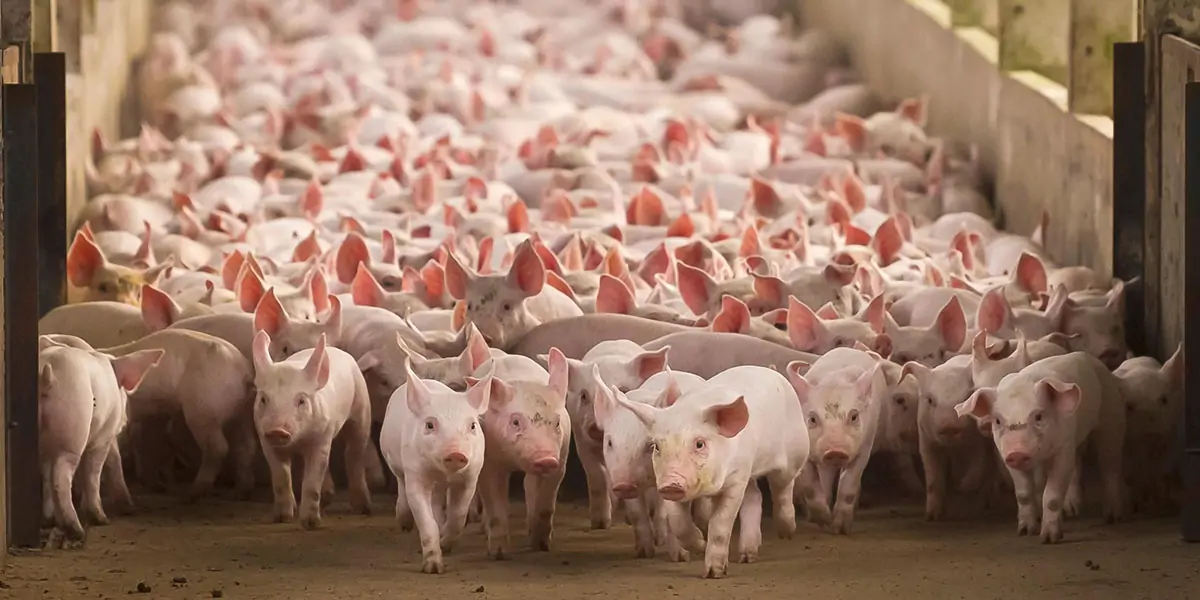Pig farming is an important sector of the food industry. Pork, skin, and lard are valuable raw materials used in the food industry and other sectors (clothing, footwear, leather, etc.).
However, farming can involve various problems and preventable diseases. The most common problems and diseases include:
Housing and Feeding Anomalies
Pigs require appropriate housing and feeding conditions to remain healthy and ensure economical production. Inadequate housing and feeding conditions can cause numerous problems, such as:
- Leg Structural Issues
- Skin Problems
- Nutritional Deficiencies
- Stress
Diseases
Pigs are susceptible to numerous diseases, some of which are notifiable, epidemic diseases that can cause significant losses in herds. The most common pig diseases include:
- Infections caused by Salmonella spp. bacteria, which can also pose a threat to humans through pork and pork products.
- Viral infections, such as swine flu, erysipelas, swine fever, and swine leptospirosis.
- Protozoan infections, such as coccidiosis.
- Fungal infections, such as those caused by Candida and Aspergilla species.
- Parasitic infections, including ticks and intestinal and lung worms.
Animal Welfare
Pigs are sensitive to their housing conditions, which must be comfortable for economical production. Inadequacies in housing technology can cause numerous health issues, such as:
- Stress
- Behavioral Problems (e.g., Cannibalism)
- Weakened Immune System
Prevention of Problems and Diseases in Pig Farming
To prevent diseases, farmers must adhere to the following measures:
Improving Housing and Feeding Conditions
Pigs must be provided with comfortable housing and feeding conditions to remain healthy and ensure economical production. Pigs require different floor space based on their age group and sex, preferring easily cleanable, dry, but not overly bright areas. Feed must be optimally composed for each age group and sex, made from high-quality raw materials.
Disease Prevention
Pigs must be protected from infectious and organic diseases. The breeding stock should be vaccinated according to veterinary regulations. Animal housing facilities should be regularly disinfected to prevent disease spread. This is facilitated by simultaneous entry and exit of age groups from a given building, allowing for dry and wet disinfection before the next group is introduced.
Ensuring Animal Welfare
Pigs must be provided with appropriate welfare conditions. In group housing, each pig should have enough space to move and establish social relationships and hierarchies with minimal stress. During grouping and transport, pigs should be handled gently to avoid stress, which can lead to various problems, such as cannibalism, miscarriages, and deterioration in meat quality.
By preventing problems and diseases associated with pig farming and breeding, farmers can improve the health and productivity of their herds and enhance economic efficiency.





